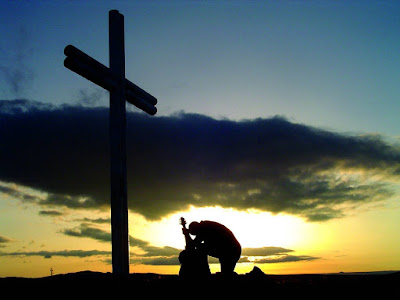The Protestant Reformation
Martin Luther has stood as a hero in the eyes of many Protestants over the centuries. His works and words have been carefully studied and shown to be a beacon of direction and foundational truths to the believer. He was a man who stood by his convictions, and in doing so is still impacting the world today. As Luther observed the corruptions within the church, it lead him to write 95 theses based out of the book of Romans addressing the corruptions in which he observed, and things the church was doing that was not in the Bible. Immediately the Protestant Reformation impacted the entire world as they knew it. As Luther was called time and again to recant his writings and teachings, he stood by what he believed. As a result he was excommunicated from the Catholic Church, and sent into exile with the permission from the Holy Roman Emperor Charles V to kill Luther without consequence.
The events leading up to Luther’s unction to write The 95 Theses was mainly church corruption among the clergy. There was much political unrest, and abuse of power. Bishops sitting in the councils profited because they had bought and sold positions, and were not willing to give them up. Likewise, bishops and priests turned the monasteries into a center of relaxed and living in leisure with their many wives and children. Luther was especially mortified at the fact that indulgences were being sold, and that it went toward freeing a soul from purgatory. He was even more appalled that they money was going toward debts of corrupt clergy who had purchased their position, and the rebuilding of St. Peter’s cathedral. Since the fall of Constantinople, events were changing the worldview of Western Europe. Advances were being made, and as a result the church was feeling the impact of new philosophical outlooks. New forms of being Christian were emerging, and called for the reformation of existing doctrines and practices. The ancient feudal system was also declining, and monarchies were starting to form.
The ideas of Protestant Christianity differs from Catholicism in that, Protestants look to Jesus, while Catholicism looks mainly to self. One of Luther’s main arguments is, “justification through faith alone.” His ideas and convictions came straight from the Bible; it was the only authority in his life. Luther struggled with good works, while Catholicism believes they are meritorious, Protestants believe, they have come by the way of the cross of Christ, with no merits or works to claim, only grace. The same with Salvation, Protestants believe they are saved as a result of divine grace, unconditionally. Catholicism believes Salvation is received at baptism, but may be lost by sin, but can be regained by penance. Sacraments in Catholicism convey grace by their operation, while it is by means of grace with faith to Protestants. On the basis of Baptism and the Lord Supper, Protestants believe in total emersion, and that the bread and wine represents Christ’s body, and is not actually His real body, and blood. Finally, while priests were forbidden in the Holy Roman Church to marry and have children because they were special, and a mediator, the Protestant faith believes in priesthood of all believers. No mediator is necessary and all can marry. It was through these beliefs, that brought Martin Luther to address and condemn the acts of purgatory, and the selling of indulgences.
As Martin Luther nailed the 95 theses on the Wittenberg Castle Church door, impact immediately took place, and thus the Protestant Reformation begins. Not long ago Gutenberg had invented the printing press, and numerous copies of Luther’s convictions were distributed, and it spreads. A wave of rebellion rises among the people as they start to deny church authority, and embark religion on their own. However, it was never Luther’s intent for his movement to become a social rebellion. The Reform traveled to Switzerland and was led by Zwingli, the Church of England compromised and created the Anglican church under Henry VIII. It went to Scotland and soon became Presbyterian under John Knox, John Calvin presented the puritan side of Protestantism. The outcome was not as intended. It took down Europe’s unity, imposed lots of new beliefs, churches started competing, persecutions, and wars took place. In the end it accomplished somewhat the corruption in the church. They counter reformed and reaffirming beliefs and weeding out the corruption.




Comments
Post a Comment